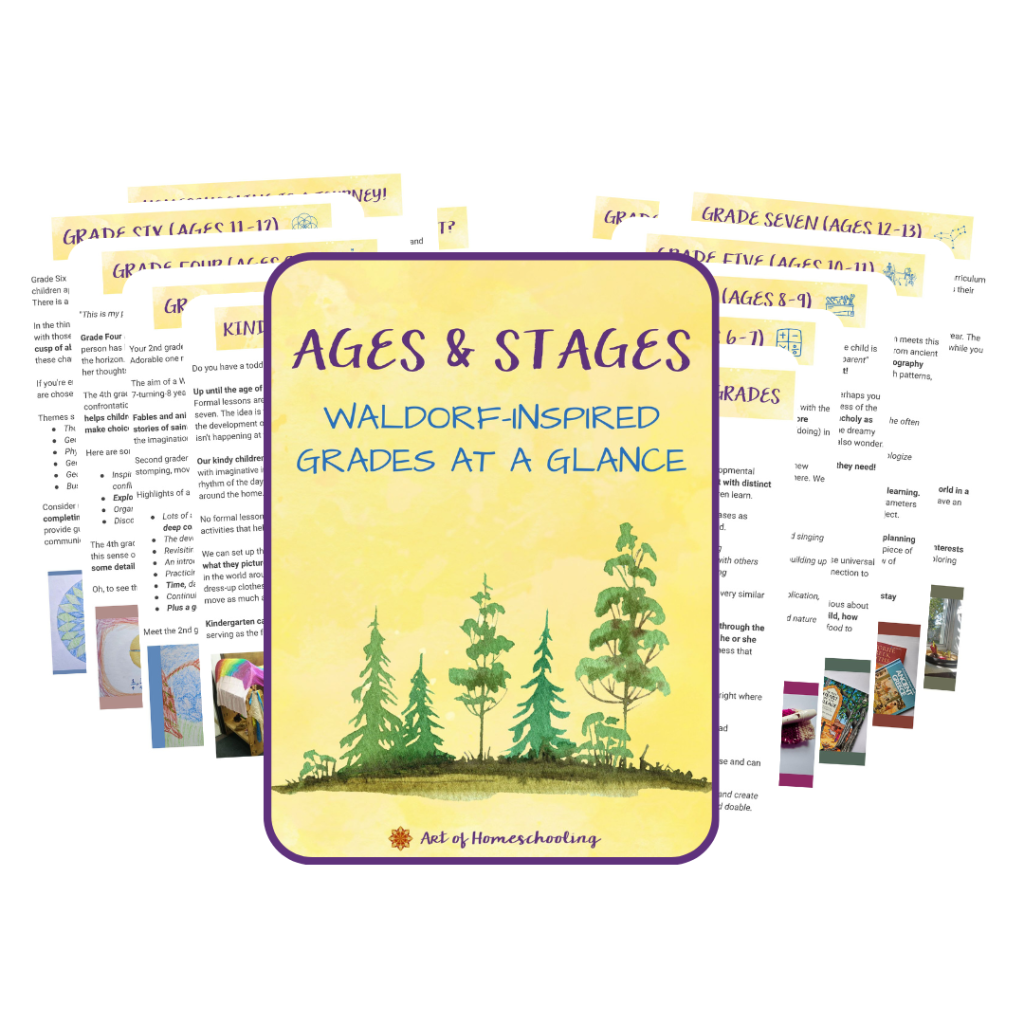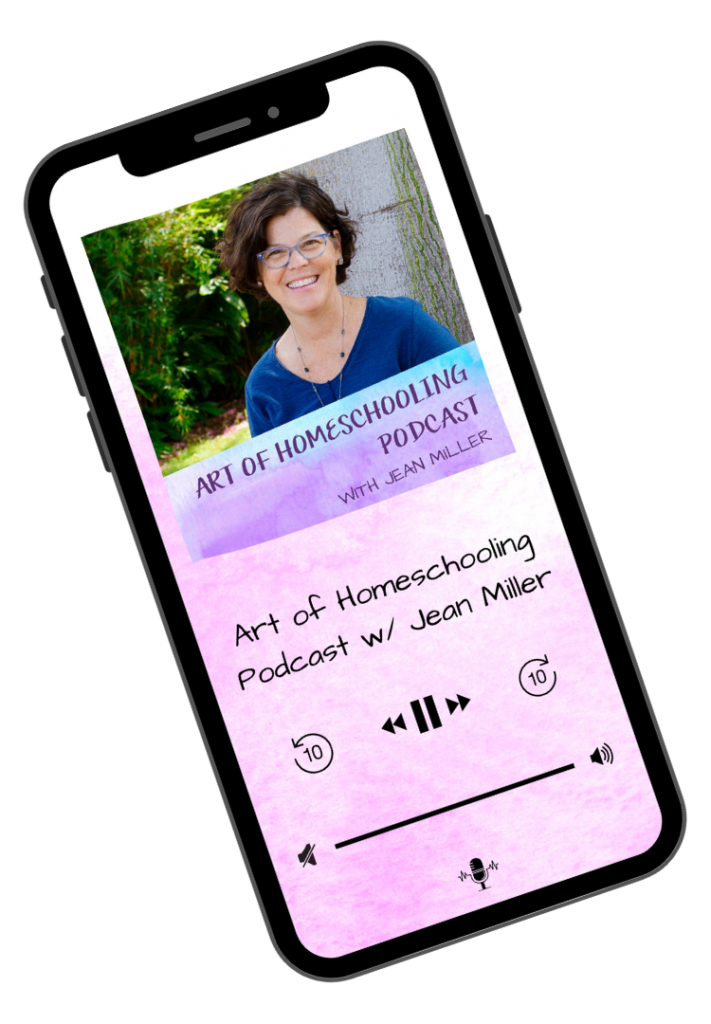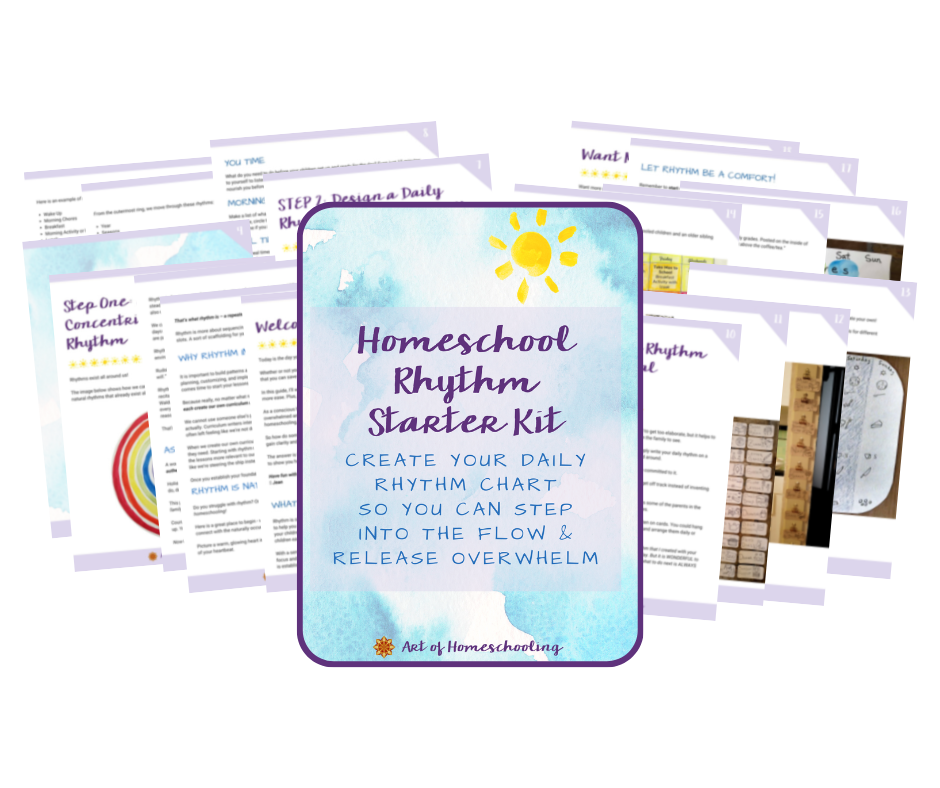Episode 193
This week on the podcast, we’re bringing you an AoH Classic ~ all about how fantastic block learning is for homeschooling.
Block learning is more efficient for planning and more effective for learning than randomly jumping from topic to topic, skimming the surface of a wide variety of material.
When planning for a block of 3 to 4 weeks, we zoom in on the topic and explore deeply, building knowledge over time.
Building knowledge through extended exploration of one topic is known to improve reading comprehension and literacy outcomes as well.
(There is a) “growing body of evidence suggesting that if we want to improve reading outcomes, combining literacy instruction with knowledge-building is the way to go.”
~Natalie Wexler’s Minding the Gap
Learning through main lesson blocks builds deep connections between what children have already learned and experienced and new concepts.
“The bottom line is that children learn best when they engage with texts and experiences on related concepts and topics, rather than randomly jumping from topic to topic or broad themes. Students benefit when a curriculum connects what they are learning to what they already know.”
~The knowledge matters campaign
For homeschoolers, block learning is flexible and dynamic, allowing for the whole family to join in!
I hope you enjoy this AoH Classis episode! Block learning is a foundational part of Waldorf-inspired homeschooling and the ideas in this episode will be inspirational to both new and experienced homeschoolers.
Press play above to listen. Catch highlights and links from the episode below.💜
Block Learning Compared to Other Teaching Methods
- Here’s the definition of block teaching, according to Unesco (the United Nations Educational, Scientific, and Cultural Organization): “a ‘block’ of time – for example, a number of weeks – being devoted to a particular topic or prescribed set of learning objectives/outcomes. It can also indicate a way of organizing the school day using long class periods (more than 60 minutes and typically 90 minutes long) to incorporate more activities and materials to engage the learners. It can be used to make time allocation more flexible to enhance activities such as project- and problem-based learning.”
- Unit studies are “time-specific overviews of a defined topic or theme that incorporate multiple subject areas into the study plan…these studies often involve multisensory learning where each activity is organized according to the thematic idea.” (www.time4learning.com)
- Project-based learning “…is a child-led teaching method that gives students the opportunity to answer a question or solve a problem by having them take part in an engaging, hands-on, sometimes, long-term project. Children use their current skill set and knowledge to do the research. As parents, we mentor them along as needed, and provide them with the tools they need. Once your child is done with their project, they’ll then use their communication skills (listening, writing, and speaking) to share their findings.” (www.time4learning.com)
3 Tools to Strengthen Your Block Teaching
- First, choose a “spine” ~ your main reader.
This is your main resource. It can be a story collection or novel, or in the older grades, it might be a biography or non-fiction book, to build your block upon. You can plan to read a story, chapter, or section from your spine each day of the block.
- Second, determine your purpose.
Start your planning by thinking about your block’s purpose or focus. In addition to the story content, will might focus on word families, paragraph writing, a series of watercolor paintings, copywork, measurement, fractions, creating a mural. One focus at a time is enough!
- Third, “One is enough!”
You can build out your block plans with things like poetry, songs, games, handwork, or hands-on projects. But one at a time is enough! One song, one game, or one hands-on project for each block is more than enough!
Remember to keep it simple, doable, and inspiring.
Block Learning is Fantastic for Homeschooling!
I’ll leave you with this quote from Roberto Trostli, author of Rhythms of Learning, to inspire you,
“Knowledge needs time to take root, blossom, and bear fruit.”
~ROBERTO TROSTLI
Main lesson blocks can unfold with this same ripening. And they really do bear fruit!
Thanks so much for tuning in today. And I hope this episode brings you a sense of why block learning is fantastic for homeschooling! See you next time. 💜
More Resources to Dive Deeper
- What is a Main Lesson Block?
- Why Does Main Lesson Block Learning Work?
- The Essential Elements of a Main Lesson Block
- How to Plan a Main Lesson Block
- Recording the Learning in a Main Lesson Book
Quotes & Sources
- (There is a) “growing body of evidence suggesting that if we want to improve reading outcomes, combining literacy instruction with knowledge-building is the way to go.” ~ “New Data Shows Building Knowledge Can Boost Reading Comprehension” by Natalie Wexler, originally appeared on Forbes.com
- “The bottom line is that children learn best when they engage with texts and experiences on related concepts and topics, rather than randomly jumping from topic to topic or broad themes. Students benefit when a curriculum connects what they are learning to what they already know.” ~ “Setting the Conditions for Building Knowledge” by the Scientific Advisory Committee, Knowledge Matters Campaign

Rate & Review the Podcast
If the Art of Homeschooling Podcast has inspired you, I’d LOVE it if you could rate and review the podcast on your favorite podcast player! Reviews can be left on Apple Podcasts (iTunes), Podcast Addict, or Stitcher.
Or simply pop on over to lovethepodcast.com/artofhomeschooling and choose where you want to leave your review.
And if you want to show your appreciation for the Art of Homeschooling Podcast, you can buy me a cup of tea!
Never Miss an Episode!
Check Out All the Episodes





